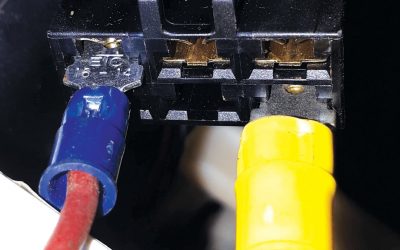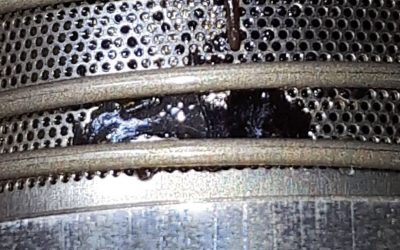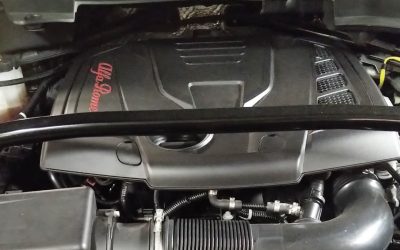If you belong to any professional associations or are active in iATN forums, you may have heard the phrase Twenty Groups. Perhaps you know another shop owner who belongs to one or have considered joining one yourself. So just what is a Twenty Group? What goes on in those mysterious meetings, and (even more important) could you benefit from joining one?
How It Got Started
While the Twenty Group concept may be new to most independent shop owners, it has its roots in Kansas City, beginning in 1947. The postwar demand for new cars was going through the roof. Taking good advantage of this, two local Ford dealers built a chain of 60 dealerships stretching from Puerto Rico to Hawaii. Each dealership in the chain had a local manager, and these managers were required to get together periodically to report on business, swap ideas and socialize.
Over time, some of the managers bought their stores and became independent dealerships. But as independents, things could get pretty lonesome. In response to this need, Mr. C. V. Nichols, joined by Maynard Campbell and Robert Morrow, developed a process for dealers from around the country to exchange ideas, experiences and expertise. No effort was made to advertise for new members. It was all done by word of mouth during dealer trips and council meetings. If you met a guy who had moxie and a good track record, you invited him in to pick his brain.
Now, more than 50 years later this pioneer group of 20 Ford dealers has grown to over two hundred Twenty Groups facilitated by NCM and Associates (Nichols-Campbell-Morrow). The solution that helped those 1947 Ford dealers can be just as effective today for the independent repair shop operator.
The Purpose of Twenty Groups
Dealer Business magazine described the Twenty Group concept as follows: “It is designed as a method for ambitious dealers to associate with like-minded individuals for the purpose of improving their management technique. The exchange of ideas is used to identify opportunities and implement improvement in your own business.â€
The key words here are ambitious, like-minded individuals, identify opportunity, implement improvement. Consider the horsepower and lever-age this can provide your business. Someone once said, “You learn to make good decisions by making bad ones.†Each week, as independent shop owners, we make scores of decisions on our own — personnel decisions, insurance, equipment, training, marketing. Who has any extra time for bad decisions? But becoming an expert in all these areas takes time also. A Twenty Group is a forum where you and other shop owners can profit by sharing your combined business hits and misses. It provides knowledge and experience that would take years to acquire on your own, and as a result both you and your employees can accomplish your goals much faster and with more certainty.
Twenty Groups Aren’t for Everyone
Joining a Twenty Group is not for everyone. The meetings can be very intense and the issues are sometimes ‘in your face.’ Consider your willingness to have your business spread out on the table while 19 others scrutinize every detail. You will be asked to explain why you made certain choices, and if you’re not prepared to confront and resolve these issues, don’t expect the issues to go away. The same issues will be back and you will hear about them more forcefully next time around. But that’s not all bad because it’s like the old adage, “This is going to hurt a little, but it’s for your own good.â€
“A Twenty Group is like a fraternity,†explains Morley Sellens of NCM and Associates. “You really get to rely on each other and know each other’s strengths and weaknesses.â€
Sellens should know, he joined NCM as a group moderator in 1971 and until his recent retirement moderated 28 different groups, including the company’s first group of independent shop owners.
“And make that a capital ‘I’ for the ‘independent’ shop owners group,†he continues. “There’s a tendency to get your feathers ruffled in their meetings.â€
He’s referring to the Service Center Scholars, a group that began seven years ago with a handful of Bosch Service Center operators. Today this group has developed to include a broad mix of operations, from three tech specialty shops to large domestic tire and auto centers, even a Texaco Fast Lube outlet.
Member Terry Keller says, “There’s something for everybody in a group like this, I can’t believe how much I’ve learned personally.â€
Keller’s shop, in Littleton, Colorado, won the Carquest Excellence Award this year. The Scholars group actually boasts two Excellence Award winners. Member Stan Elmore of Lafayette, Colorado was the 1993 recipient. This diversity has proven very valuable for the group, but it does make for different ways of seeing things.
Bob Kee, from Kerrville Texas, has been in the group from the beginning. “You’ve got a lot of experience and strong personalities together in one room,†says Kee, “and everyone is used to getting their own way at their shop. You have to learn some give and take.â€
By design, members hail from all parts of the country to ensure the group benefits from regional ideas drawn from across the U.S. This also protects members from losing valuable business secrets to competitors and neighbors. Consequently, there’s no holding back on information or strategy for fear it will be used against you.
The Composite
“The heart of a Twenty Group is the monthly composite,†explains Sellens. “If you can measure it —you can fix it. It’s like diagnosing a car problem. You’ve got to have reliable numbers before you know what to fix.â€
The composite is an eleven-page book compiled by NCM from the financial statements of the groups members and distributed monthly to each member. It’s a comparative study that measures your performance in dozens of categories, including sales/expenses/growth against yourself, against other members and against industry standards. It’s a powerful diagnostic tool that pinpoints what’s working, and what’s not in your overall operation.
“With the composite,†Sellens continues, “if you’re a little weak in one area, and you can see that ‘old Fred’ over here is strong, now you know who to sit with at dinner.â€
The Meetings
Meetings for the Scholars group are held twice a year at a location chosen by the members, and they often pick a resort area. As the meeting facilitator, NCM makes all the meeting room, dining and lodging arrangements for the Scholars group.
“You don’t want people searching around for where to eat or stay,†explains Sellens. “This way we can concentrate on business. The social aspect is also very important,†he continues. “You have to get away from that pressure cooker back home. Members bring their wives, sometimes their children, and treat it somewhat like a vacation. With any group like this, often more problems are solved on the golf course than in the meeting room.â€
Bob Sloan is the new moderator for the Scholars. He balances the importance of the financial aspects against the social side of the group. “The keys to our success are the composite and the uniform reporting system that give us the ability to compare our performance with other members. The OE dealers have had these for years. But even if you’re not a numbers guy, the relationships that are established here are also valuable and important.â€
It’s 7:00 Saturday morning. The Scholars have finished breakfast together, and a hat goes around the meeting table as they take their seats. As the hat passes, each member drops in a $20 bill. When it returns, the meeting chairman counts the money, and when satisfied everyone’s in, announces “Gentlemen, it’s Dollar Time.†Here, each member gets five minutes to present to the group a new idea or an improved method of doing things that has helped his business. Following the last presentation the group votes on the best idea, and Russ Stein, from Louisville, gets the nod this time from his fellow members.
“Of course, we all really win,†Stein grins as he pockets the money. “Where else can you get 19 great ideas for only 20 bucks?â€
His winning idea? Stein replaced the aging shuttle vehicles at both his stores with bright new red and yellow VW Beetles.
“We had them painted on all sides with our company logos. They are rolling billboards,†says Stein. “Everywhere we go people point and smile. The New Beetles make everyone feel happy and at ease.â€
The cost, he says, is less per month than the radio spots he was doing.
“My kids drive them to the mall on weekends, so they advertise seven days a week.â€
That night when the Scholars and their wives meet together for dinner, Stein is a popular guy at the bar.
Next, Bob Sloan presents a special moderator’s study. It seems calculations based on the composite show that most members who increased their marketing budget last year saw a corresponding increase in sales, but some did not. Sloan and the group examine how and where the marketing money was spent and what the return was. The data and ensuing discussion cause several members to revise their marketing game-plans.
For the next three days the Scholars work through an agenda of topics prepared before the meeting. Examples of previous agenda topics include increasing customer referrals, training service writers, improving productivity and marketing strategies. Members who have made exceptional progress since the last meeting are also given time to share the details behind their improvement.
The meeting ends at noon on Monday. The group has covered a lot of ground. In the hotel lobby, these ‘expert’ friends are hugging, saying goodbyes, and several are off to spend some vacation time in the area. Everyone’s briefcase is weighted down with notes and plans for his business. Within a few days, the Scholars will be back at work, putting what they have learned into practice, in hope of more improvement by the next meeting. Many members stay in contact with each other between meetings, often daily by telephone or e-mail.
The Twenty Group Advantage
The business side of repairing automobiles has never been more complex and the cost of bad decisions has never been so high. The Twenty Group concept that propelled new car dealers to success is a tool that can be just as effective for independent shop owners. If you are serious about improving your business, and you would welcome an intense, productive involvement with other successful shop owners, follow up on the idea.
Editor’s Note:
For further information on Twenty Groups facilitated by NCM and Associates, Circle Number 116 on the Reader Service Card. It should be noted that management groups with goals and methods similar to the Twenty Group model are also facilitated by other organizations.
Steve Beckley drew upon his first-hand knowledge to prepare this article. He operates Beckley Automotive Services, a Bosch Service Center in Des Moines, Iowa, and is an original member of the Service Center Scholars. You may reach Steve at stvbeck@dwx.com.





0 Comments